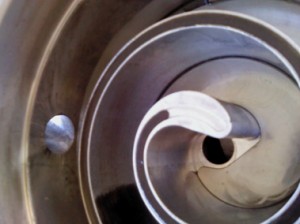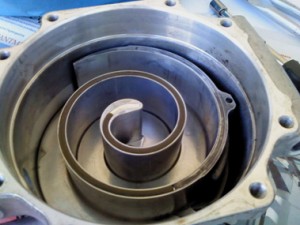The project scope is to simulate and optimize the design and operation of a heat-to-power engine, operating at supercritical conditions. At the same time, focus will be given on the evaporator and the scroll expander, since such components are not commercially available at such scale. These two key components will be designed from scratch, contributing to the system’s performance increase. Finally, they will be manufactured, tested, and then integrated to the SCORC engine, which will be extensively tested at the NTUA laboratory.
The main technical objectives of the proposed project are:
- to optimise SCORC key components (i.e. evaporator and scroll expander) using CFD and evolutionary optimisation software
- to develop, manufacture and test these two key components
- to develop, manufacture and test a high performance low-temperature SCORC engine
As a result, the overall objective of the project is to open a new market for the participating SMEs, so as to increase their competitiveness and business cycle, by introducing in the unexploited “waste heat-to-power” market competitive products.
 |
 |
 |
 |
